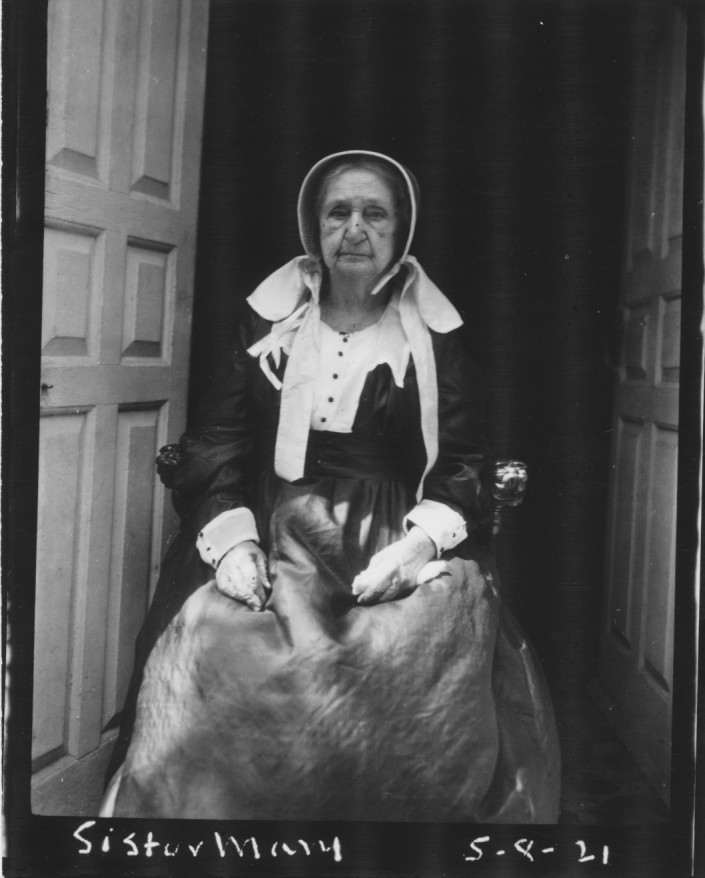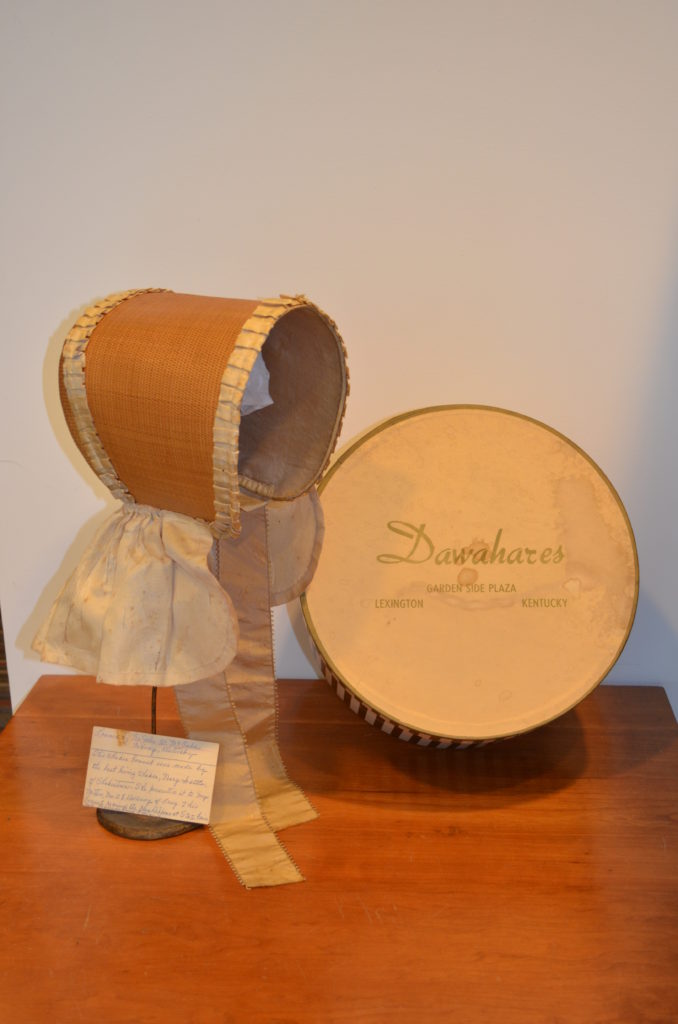Maggie McAdams, Assistant Program Manager
Gender equality was, and is, a hallmark of Shaker belief.
In modern times, much of the Shakers’ progressive social structure may be taken for granted. Make no mistake though – the role of women in Shaker communities has historically set the society apart from the world around them in very meaningful ways.
Throughout the history of the Shaker movement, female leadership and influence has given shape to much of what we identify as “Shaker.” This can be traced from the time of Mother Ann Lee, who led a group of Shakers to first settle in America in 1774, and continues through every Shaker sister who has come after her. At Pleasant Hill, this legacy concluded in 1923 with the death of Sister Mary Settles.

Sister Mary Settles came to Pleasant Hill in 1859 with two small children. She claimed to be a widow and found refuge with the Shakers at Pleasant Hill, a place she called home for the final 64 years of her life. While Sister Mary took on many roles and became a leader in the community, her most significant contribution to the site was her role as an educator.
As the 19th century came to a close, the population of Pleasant Hill was dwindling.
The Shaker community at Pleasant Hill closed its covenant in 1910, with twelve Shakers remaining, including Sister Mary. As the Shaker community and buildings opened up to the world, Sister Mary became a local celebrity. People traveled from near and far to chat with her and perhaps snap a photo. Once the last Shaker Brother passed away in 1922, Sister Mary became the very last Pleasant Hill Shaker.
At a time when the community and religion was fading around her, it seems that Sister Mary did what she could to keep the story alive. She always welcomed questions on the Shaker faith, and was well-read and ready for a good conversation.
She is reported to have voted in the first election women were able to in 1920. In fact, she was quoted in a newspaper article, when asked if she voted, “Of course, isn’t the equality of women part of our religion?” Gender equality was indeed part of the Shaker faith, and every level of leadership had both a man and a woman at the helm.

Now on display at Shaker Village of Pleasant Hill.
Sister Mary was happy to give her opinion on matters of the day and was, by many reports, a great conversationalist. She was a staunch defender of Shakerism, and wanted people to understand the society as she did. Of course we remember them today, and study them actively, but as of 1922, Sister Mary was the very last Pleasant Hill Shaker, and more and more Shaker communities around her were being disbanded. The world was closing in, and it seems that Sister Mary decided to spend her time helping curious people of the world understand her way of life.
How should we remember Mary Settles today? As a mother, a leader, an educator, the “Last Shaker,” a celebrity, an advocate for women’s rights? All of the above?
At Shaker Village, we believe that studying the history of the Shakers, of Pleasant Hill and of people like Sister Mary gives us perspective on our own beliefs, roles and identities. Which begs the question: How will you be remembered?